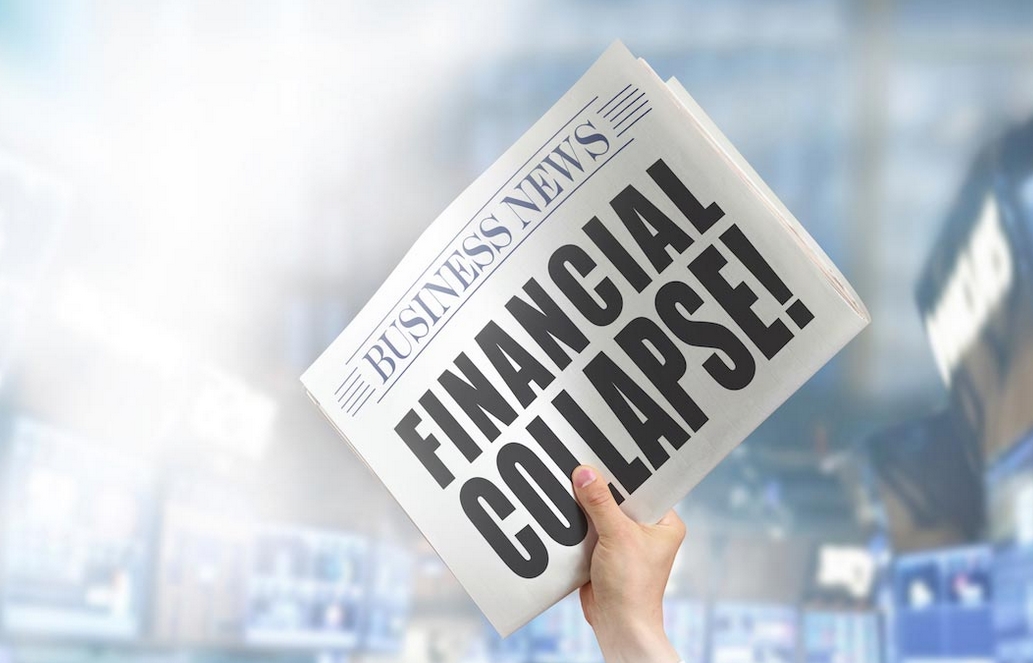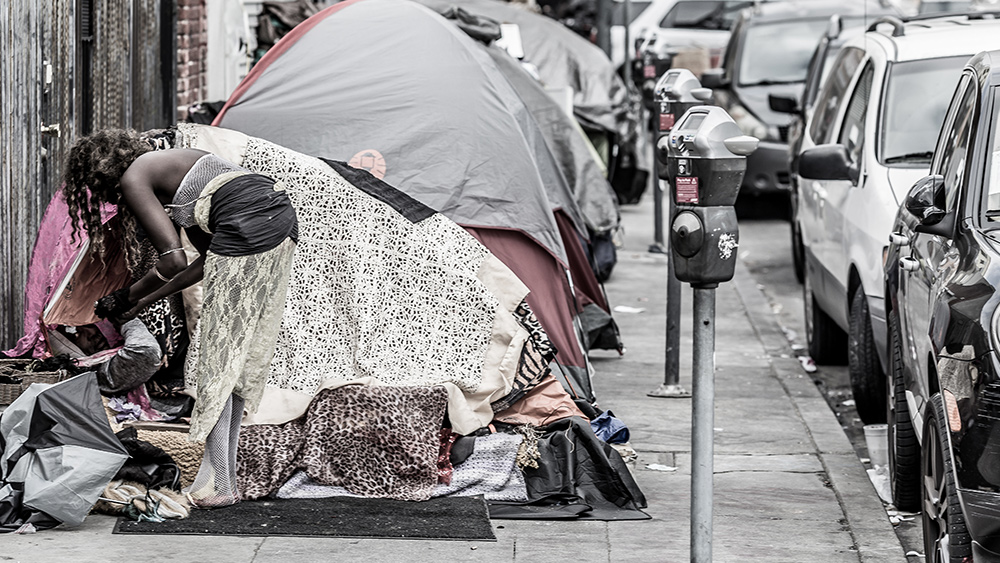
JPMorgan Chase CEO Jamie Dimon warned Wednesday, June 1, that an economic hurricane is coming due to inflation and the Russia-Ukraine conflict.
"I said there's storm clouds but I'm going to change it. It's a hurricane," he said during his speech at a financial conference in New York.
Dimon added that he is preparing the biggest U.S. bank for this "superstorm" and likewise advised analysts and investors to brace themselves on this imminent collapse. (Related: The biggest economic crash America will ever experience is coming, warn multiple financial experts.)
The CEO emphasized the two issues he is concerned about: Russia-Ukraine conflict's effects on prices of commodities and the federal reserve system's efforts to raise interest rates and reduce its balance sheet to tackle inflation.
The Ukraine war had a massive impact on commodities, including food and fuel. "Oil almost has to go up in price because of disruptions caused by the worst European conflict since World War II, potentially hitting $150 or $175 a barrel," Dimon said.
He also noted that the so-called quantitative tightening (QT) is scheduled to begin this month and will ramp up to $95 billion a month in reduced bond holdings. "We've never had QT like this, so you're looking at something you could be writing history books on for 50 years. Several aspects of quantitative easing programs backfired, including negative rates," he said.
Inflation is at multi-decade high and exacerbated by supply chain disruptions and the Wuhan coronavirus (COVID-19) pandemic. It has sown fear that the Fed will inadvertently tip the economy into recession as it combats price increases.
In an interview with CNN on Tuesday, May 31, Treasury Secretary Janet Yellen admitted that she was wrong when she said last year that the trajectory of inflation would be a "small risk."
"As I mentioned, there have been unanticipated and large shocks to the economy that have boosted energy and food prices and supply bottlenecks that have affected our economy badly that I didn't at the time didn't fully understand. But we recognize that now," Yellen said.
Fed interest hike will push through
Minutes from a meeting last month revealed that Federal Reserve officials were keen on raising interest rates quickly and possibly more than markets anticipate to address the swelling inflation trouble.
Members of the Federal Open Market Committee are interested in increasing the rate by 50 basis points at the next couple of meetings, supposedly to better fight inflation. The 0.50 percent interest rate hike would be in addition to the approved rate increase of half a percentage point, which would start this month.
The Fed claims that the interest rate hike would help reduce the central bank's $9 trillion balance sheet, which consists mostly of Treasury Department and mortgage-backed securities. This represents the biggest rate hike in 22 years.
Meanwhile, San Francisco Federal Reserve President Mary Daly said she backs raising interest rates aggressively until inflation comes down to a reasonable level during an interview Wednesday with CNBC's Steve Liesman on "TechCheck."
"We aren't really there yet, so we need to see those data on a slowing economy bringing demand and supply back in balance, and I need to see some real progress on inflation," she said. "Otherwise, I would think we just move the rate until we find ourselves at least at neutral and then we look around to see what else needs to be done."
So far this year, the Fed has enacted two rate increases totaling 75 basis points, including a 50 basis point increase in May. A basis point is equal to 0.01 percent.
During his guesting on Steve Bannon's "War Room," financial analyst Ed Dowd said that the Fed is trapped.
"There are so many indicators that I follow with some other people that suggest that the rate-hike cycle was over before it started. So, they're tightening into a disaster," said Dowd, also a former portfolio manager for investment firm BlackRock.
He warned that continued interest rate hikes from the Fed are one of the first signs that the American economy "is starting to really collapse."
"After inflation continues increasing despite the first few hikes, they will claim that the interest rate needs to be further increased to finally stop the out-of-control inflation," Dowd said. "In the end, they will realize the massive policy error and the central bank will not be able to raise interest rates another time without collapsing the whole system."
Visit Collapse.news for more updates related to the looming financial crisis.
Watch the below video as JPMorgan Chase CEO Jamie Dimon talks about the coming severe economic hurricane.
This video is from the TruNews channel on Brighteon.com.
More related stories:
It's mid-2022 and the fed has still done nothing to fight inflation.
Sources include:
Please contact us for more information.





















